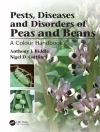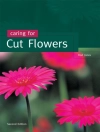The present book entitled, “Re-visiting the Rhizosphere Eco-system for Agricultural Sustainability” written by experts in the field, provides a comprehensive and consolidated state-of art overview of various aspects of rhizosphere biology, ecology and functioning. The role of rhizosphere microbial diversity in enhancing plant health and plant-microbe beneficial symbioses is discussed. Main topics include the diversity of plant-associated microbes in the rhizosphere, below-ground communication among the plant, soil, insects and microbes, rhizosphere ecosystem functioning, rhizosphere engineering, recruitment of microorganisms in the rhizosphere, mycorrhizal fungal symbiosis, positive interaction of the plants with the beneficial soil microorganisms for inducing the plant growth, conferring abiotic and biotic stress tolerance and modulating several pathways of the plants for the proper establishment and revitalization in the degraded and contaminated soils or negative likes the host-pathogen interactions leading to the disease development in plants. Further chapters focus on the role of signaling during the different stages of the plant-microbe coexistence, in symbiotic or pathogenic relationships, in quorum sensing, microbial signaling and cross-talk, bio-film formation, and antimicrobial peptides. The book also discusses the application of microbes in biodegradation of xenobiotic contaminants, bioremediation of heavy metals, sustainable agriculture and soil health, biological control of insect pests and plant pathogens, and the latest tools of omics which offer pioneering approaches to the exploration of microbial structure and function, secretome, holobiome, below-ground interaction, and microbial cooperation for sustainable food production and enhanced resource acquisition. Descriptions of cutting-edge techniques and novel approaches make this book unique in the area of rhizosphere biology. This is a useful reading material for researchers and students of microbiology, agriculture, ecology, and rhizosphser studies.
Cuprins
Chapter 1. Evolution of the Knowledge and Practice of Endophytic Microorganisms for Enhanced Agricultural Benefit and Environmental Sustainability.- Chapter 2. The Mycorrhizosphere Revisited – Multitrophic Interactions.- Chapter 3. Conservation Strategies for Rhizobiome in Sustainable Agriculture.- Chapter 4. Exploring the rhizosphere microbiome for sustainable agriculture production.- Chapter 5. From Rhizosphere to Endosphere: Bacterial-Plant Symbiosis and its impact on Sustainable Agriculture.- Chapter 6. Arbuscular Mycorrhizal fungal symbiosis for mutual benefit: More than expectation.- Chapter 7. Rhizodeposits- An essential component for microbial interactions in rhizosphere.- Chapter 8. Rhizospheric Microbial Diversity: Organic Vs. Inorganic Farming System.- Chapter 9. Rhizomicrobes: The underground life for sustainable agriculture.- Chapter 10. Synthetic biology tools in cyanobacterial biotechnology: recent developments and opportunities.- Chapter 11. The potential of rhizobacteria for plant growth and stress adaptation.- Chapter 12. Mycoremediation – An emerging technology for mitigating environmental
contaminants.- Chapter 13. Exploration of Plant growth-promoting rhizobacteria (PGPR) for improving productivity and soil fertility under sustainable agricultural practices.- Chapter 14. Rhizosphere engineering for systemic resistance/tolerance to biotic and abiotic stress.- Chapter 15. Understanding the Microbiome Interactions across the Cropping System.- Chapter 16. Role of rhizosphere microorganisms in endorsing overall plant growth and development.- Chapter 17. Rhizospheric microbial community as drivers of soil ecosystem: Interactive microbial communication and its impact on plants.- Chapter 18. Rhizospheric Microbes and Plant Health.- Chapter 19. Omics approaches to unravel the features of rhizospheric microbiome.- Chapter 20. Rhizo-deposit and their role in rhizosphere interactions among the plant, microbe and other ecologicalcomponents for crop management.- Chapter 21. Effects of Irrigation with Municipal Wastewater on the Microbiome of the Rhizosphere of Agricultural Lands.- Chapter 22. Plant-Rhizosphereic microbes interactions: enhancing plant growth and improving soil biota.- Chapter 23. Microbes mediated rhizospheric engineering for salinity stress mitigation.- Chapter 24. Metatranscriptomics of plant rhizosphere: A promising tool to decipher the role of microorganisms in plant growth and development.- Chapter 25. Rhizospheric engineering for sustainable production of horticultural crops.
Despre autor
Dr Udai B. Singh
Senior Scientist
Plant-Microbe Interaction & Rhizosphere Biology Lab, ICAR-National Bureau of Agriculturally Important Microorganisms, Kushmaur, Maunath Bhanjan- 275103, Uttar Pradesh, India.
Dr Udai B. Singh, presently working as a Scientist (Senior Scale) in the Plant-Microbe Interaction & Rhizosphere Biology Lab, ICAR-National Bureau of Agriculturally Important Microorganisms, Kushmaur, Maunath Bhanjan, Uttar Pradesh, India. His specialized areas are: Plant-Microbe Interactions in the rhizosphere with special reference to biotic and abiotic stress management/molecular biology/biotechnology/plant pathology. As an active researcher, Dr Singh has published many research and review articles in the journals of national and international reputes and book chapters in edited books. He has developed some microbial-based bioformulations/technologies for sustainable crop production. His team has developed databases and web-based portals for public use. His developed portal (www.mgrportal.org.in) has been awarded copyright. Dr Singh has been awarded ‘DST Young Scientist’ under Fast-Track Scheme, ‘Young Scientist award’ of RASSA, New Delhi, Bharat Shiksha Ratan Award, K.P.V. Menon and Prof. K.S. Bilgrami Best Poster Award for the Year 2018 by Indian Phytopathological Society, New Delhi and Indian Society of Mycology & Plant Pathology, Udaipur.
Dr Jai P Rai
Associate Professor (Plant Protection)
Department of Mycology and Plant Pathology (BHU-KVK), Institute of Agricultural Sciences, Banaras Hindu University, RG South Campus, Barkachha Mirzapur- 231001, Uttar Pradesh, India.
Dr Jai P Rai is presently working as Associate Professor (Plant Protection), Department of Mycology and Plant Pathology (BHU-KVK), Institute of Agricultural Sciences, Banaras Hindu University, RG South Campus, Barkachha Mirzapur, Uttar Pradesh, India. He has anextensive experience in teaching, research and extension for more than two decades. Dr Rai is a prolific writer and has authored a number of research and review papers of international acclaim, books, book chapters, popular articles and a laboratory manual for students of Plant Pathology. Apart from authorship, he is also on the panel of reviewers of several international journals and publication houses and has conducted reviews for more than a hundred articles. Dr Rai is also a proud recipient of several awards. The Rajbhasha Award for the year 2013 was conferred to him by the then President of India, Hon’ble Shri Pranab Mukherjee for original writing. Dr Rai has also been a recipient of Award of Excellence for Energy Awareness in Agriculture by IIT, BHU and has been declared Scientist of the Year-2015 by Scientific Advance Agriculture Research Society for his contribution to the field of Agricultural Sciences.
Dr Anil K. Sharma
Professor
Department of Biological Sciences, CBSH G.B. Pant University of Agriculture & Technology Pantnagar- 263153, Uttarakhand, India
Dr Anil K. Sharma is a Professor at the Department of Biological Sciences, CBSH G.B. Pant University of Agriculture & Technology Pantnagar. He was a Visiting Scientist at the University of Basel, Switzerland from July 2003 – November, 2003, and at the University of Helsinki, Finland in 2013. He completed his post-doctoral studies at GSU, Louisiana, USA, and he has extensive research and teaching experience. He is a reviewer for DBT, DST, and MOEF projects, and journals such as the Biocontrol Journal, International Journal of Agriculture, and Microbiology. He holds three patents in the field of plant biology and microbiology and has received a number of prestigious grants. His laboratory is involved in various international collaborations, and he has published more than 84 research articles, 32 review articles and two books with renowned publishers. He has presented his research on several internationally acclaimed platforms.












